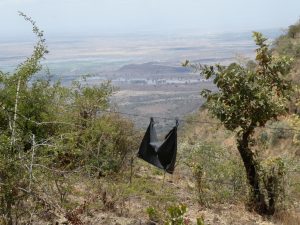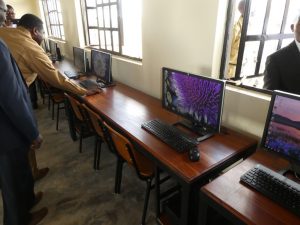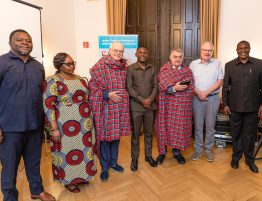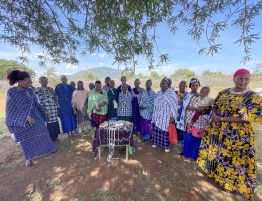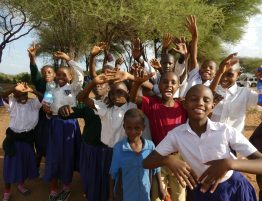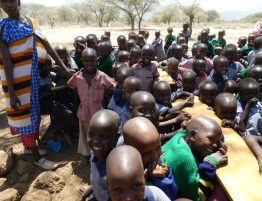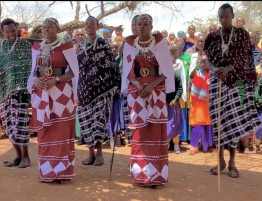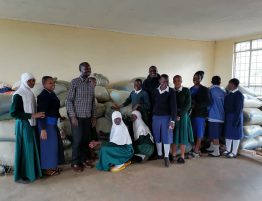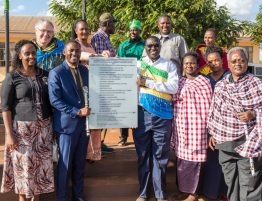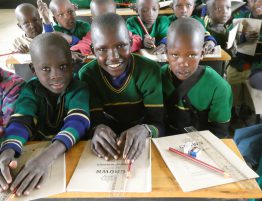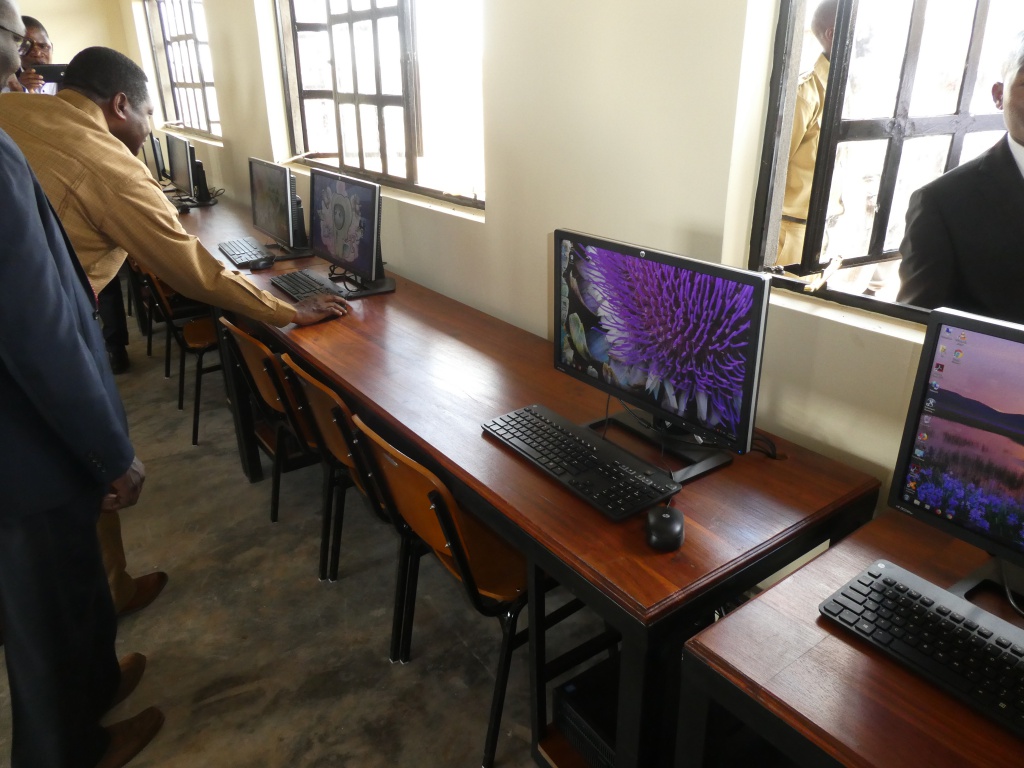
In this newsletter, we once again report on our projects with the PAMS Foundation in the field of conflict between man and nature and on the most important events of recent times in Emboreet, such as the opening of the computer center at the secondary school and the start of construction for the new artisan center.
Elephant Corridor at Ngorongoro Crater
The elephants in the world-famous Ngorongoro Crater not only linger in the crater, but also embark on centuries-old hiking trails that today usually lead to other national parks. However, the strong growth of the Tanzanian population means that people are settling in more and more areas of the country in order to cultivate fields there. And so in some areas there are dangerous encounters with wild animals, so that annually a high number of Tanzanians is killed by elephants. The elephants also like to come to the fields during the rainy and harvest season to eat them empty – and people are starving. Last year, PAMS erected a protective fence along the fields of a corridor on the Ngorongoro-Crater. The “fence” consists of cloths dipped in chilli brew.
The sense of smell of elephants is highly sensitive, they stay away from the fence. In the past year, an elephant did not come to the fields adjacent to it, or even to the villages, during the mostly nocturnal changes in the corridor. So the farmers learn to protect themselves and their fields and to live with the wild animals. Only then are they, of course, willing to accept the national park idea and the existence of wild animals.
Schools “Living in Harmony with Nature”
A few years ago, at a number of secondary schools east and west of the Tarangire National Park (including the secondary school in Emboreet), PAMS launched the educational project “Living in Harmony with Nature . We want to raise awareness of the importance of wildlife and the conservation of natural resources in the population. The “club” is very popular with the students. They learn the meaning of nature and animal protection, the planting of trees, and they visit the national parks. They learn to understand the relevant and most important environmental problems of their region. We had a very motivating conversation with the students of the Emboreet club some time ago. I had never experienced that students in Tanzania could see ecological backgrounds so clearly and analyze causes of environmental problems so well – a very encouraging development!
Opening of Computer Center including a Library
On October 20, 2018, Joseph George Kakunda (Deputy Minister in the Presidential Office) and Adriano Chaula (District Commissioner of Simanjiro District) opened the new computer center at the Secondary School in Emboreet. ECLAT had previously installed 21 state-of-the-art computers in the new computer room, and in the room there was a bookcase with shelves for books and tables with chairs for reading. Even though many libraries and bookshops are closed here in Tanzania, because of the frequent lack of access to the internet, books will for a long time form an important basis for learning in schools.
The celebration was well attended by pupils, villagers and representatives of the Tanzanian government from all levels. It was a long and emotional celebration with traditional dances, songs and many speeches about the value of education and the well-equipped secondary school. The government representatives thanked ECLAT and its continued commitment to this school and other projects, as well as donors in Germany for providing the necessary funds.
Hardly any secondary school in Tanzania has such a computer center. But we want the students there to have a chance to compete internationally with young people. Without computer knowledge this is impossible. In any case, the students showed great interest in immediately trying to learn how to deal with computers.
Laying of the foundation stone for the craftsmen center
For all our construction work, the craftsmen come from outside the district. And: Many of our students do not graduate, which means they do not qualify to study. We have therefore decided to build a craft school in Emboreet to provide youth from the district with a crafting career perspective. Later, they should be able to build an existence in the district.
Thanks to the support of the BMZ (Federal Ministry for Economic Cooperation and Development), the construction work for the center could begin in October, so that by the middle of the year, the first young people can begin their bricklayer apprenticeship.
A German architect’s eye on ECLAT construction
In August 2018, I visited Tanzania and Emboreet for the second time. Already in February 2015, I had the opportunity to get to know the projects of and its partner organization ECLAT. Besides my interest in people, I also wanted to look at the buildings from the perspective of an architect. I was particularly impressed by my visit to the secondary school in Emboreet. The school hall which was under construction at the time was now completed, and a number of new classrooms, specialist rooms, and student residences were added. The services of the contractor, who was commissioned with the respective complete service from the foundation to the painting, made a stable and technically clean impression. The same applies to the recently opened seminar center for the women’s groups of ECLAT. After all, Emboreet is more than two hours by car from the nearest main road to Arusha in the middle of the Maasai steppe.
A special honor and joy were the festivities for the handover of the new or rather renovated primary schools in Loiborsoit “A” and Kaangala to the village communities and the Tanzanian state. Again, the craftsmen had done a great job!
My other specialist task was to visit a part of the urgently needed primary schools in the district to assess the renovation costs and the costs. I was shocked by the condition of the schools we visited in the villages of Nado-Ilchukin, Terrat and Sukuro: classrooms with broken floors and school desks, leaky or even partially missing roofs, without window glazing and with desolate and inadequate sanitary facilities. Of course, one should not take as a basis our western standards. Instead, simple and effective handcrafted methods with as many regional, partly self-made building materials as possible are in demand. I am delighted that people will soon get a craft training on site in order to be able to lend their hand to the construction and renovation measures themselves. The tradesman center under construction is an important step in this direction. Until then, it is still a long way, which cannot succeed without the help of third parties.
Joachim Buchmüller, chartered engineer, Architect (upendo Treasurer)
Photos (October 2018): Fred Heimbach


